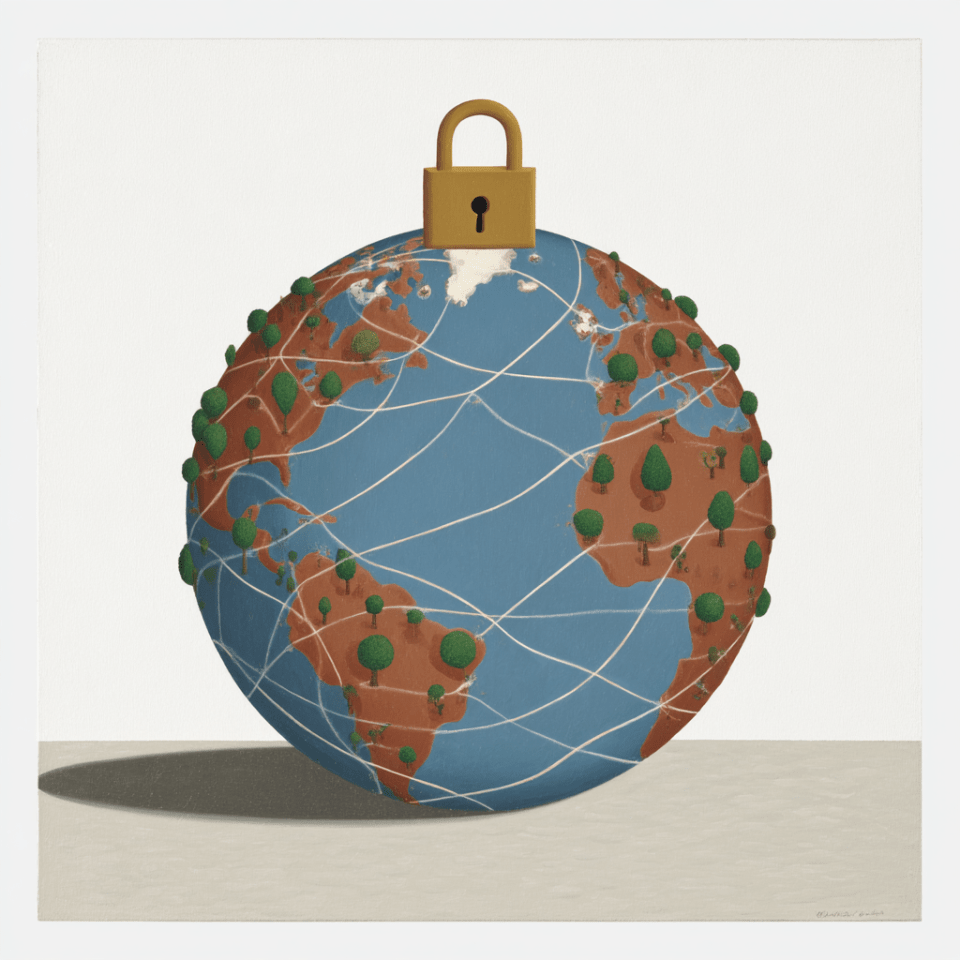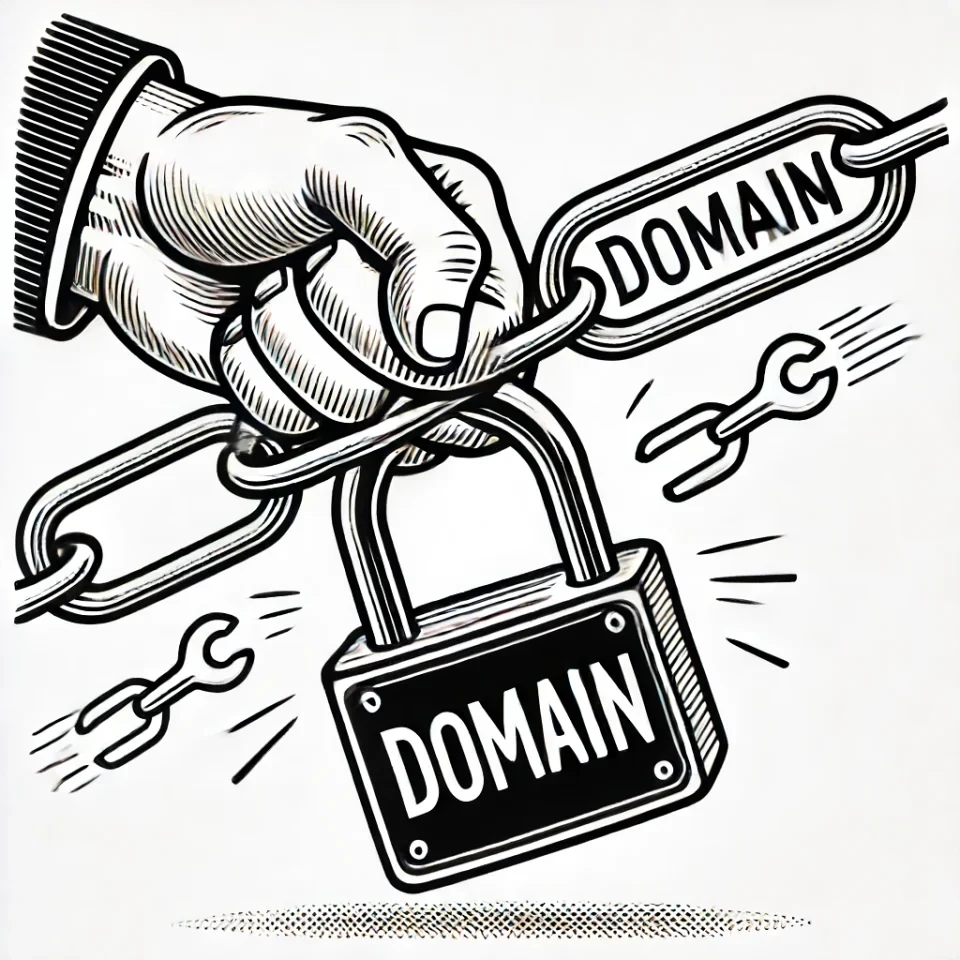Managing your online presence often involves dealing with sensitive personal information, especially when registering a domain name. The necessity of domain privacy protection might not be immediately apparent, but the risks of leaving your details exposed are significant. Publicly available contact information can make you a target for spam, identity theft, and other malicious activities.
This blog will walk you through everything you need to know about domain privacy protection hostgator, encompassing its benefits, risks of not having it, alternatives, acquisition methods, costs, and the best services to use. Let's start by understanding what domain privacy protection is and why it matters.
Understanding Domain Privacy Protection
Domain privacy protection is a service that keeps your personal information hidden from the public. But why is this important?
Before we get into that let us briefly take a look at what ICANN is.
What is ICANN?
ICANN (Internet Corporation for Assigned Names and Numbers) manages the global domain name system. It requires all domain registrars to list the personal details of domain owners—like your name, address, phone number, and email—in a publicly accessible database called WHOIS. This database was created to help with tasks like law enforcement and intellectual property protection.
Why do you need domain privacy protection?
While the WHOIS database has good intentions, it also makes your personal information available to anyone. This can lead to spam, identity theft, and unwanted contacts. Domain privacy protection solves this problem by replacing your information in the WHOIS database with the registrar's or a proxy's contact details.
Don't Leave your info open to the public: This youtube video provides a succinct explanation of what domain privacy is, how much it costs, and its benefits. It answers essential questions about the need for domain privacy.
What Are The Benefits Of Domain Privacy Protection?
Domain privacy protection does more than just hide your contact details—it provides several key benefits for website owners.
- Protection from hackers and cyber threats: Makes it harder for hackers to find and target your domain through WHOIS data.
- Safeguard against stalkers and identity thieves: Keeps your personal details private, reducing the risk of harassment or identity theft.
- Keep new ideas hidden from competitors: Prevents competitors from accessing your business information through WHOIS.
- Avoid unwanted offers from domain buyers: Hides your contact information, stopping domain flippers from sending unsolicited offers.
- Reduce spam and unwanted promotions: Protects your email and phone number from spammers who scrape WHOIS databases.
- Protect ecommerce and software companies’ locations: Ensures your physical address and sensitive details stay private, complying with data protection regulations like GDPR and CCPA.
Risks Of Not Using Domain Privacy Protection
When you don’t use domain privacy protection, your personal information is exposed in the WHOIS database, leading to several potential risks:
Public exposure of personal information
- Your contact details (name, address, phone number, email) are easily accessible to anyone online.
- Impact: Similar to leaving your private phone number on a public bulletin board, this information can be scraped by bots, allowing cybercriminals, spammers, and marketers to access it. As per reports, from 2020 to date, 52% of phishing sites have used target brand names and identities in their website addresses.
Increased spam and unwanted contacts
- Spammers target the WHOIS database to collect contact details.
- Impact: Expect a flood of unsolicited emails, phone calls (including international calls), and even physical junk mail.
Heightened risk of security breaches
- Publicly available information makes you more vulnerable to phishing attacks, identity theft, and other cybercrimes.
- Impact: Hackers can use your personal data to launch targeted attacks. The average cost of a data breach is around $4.88 million, which is considered to be the biggest jump in price, since the days of the pandemic.
Competitors and domain flippers can take advantage
- Competitors can analyze your public WHOIS data to gather insights about your business.
- Impact: Domain flippers can reach out with offers to buy your domain, often at inconvenient times, disrupting your focus and business operations.
Without domain privacy protection, you're leaving yourself open to unnecessary risks, from annoying spam to serious security breaches and business disruptions.
What Are The Alternatives To Domain Privacy Protection?

If you're looking for ways to safeguard your personal information without using traditional domain privacy protection services, here are some options to consider:
Register with fake information
- Registering your domain with false personal details.
- Risks: Violates ICANN rules and could result in your domain being revoked or legal issues.
Rely on government regulations
- Some countries automatically provide privacy protection through regulations.
- Example: In the UK, personal details are often redacted in the WHOIS database.
- Consideration: This depends on your location and the domain extension you choose, and it may not apply everywhere.
Choose registrars with built-in privacy
- Some domain registrars offer privacy protection as a standard feature.
- Example: Cloudflare Registrar includes WHOIS privacy at no extra cost.
- Watch Out: Registrars like Njalla may pose risks, as they technically own the domain, which could lead to complications if they go out of business.
Pay with cryptocurrencies
- Use cryptocurrency to purchase domains, keeping your financial transactions private.
- Important Note: Only use trusted registrars that comply with ICANN policies to ensure security.
Use TLDs with automatic privacy
- Some domain extensions automatically provide privacy protection.
- Example: The .ca extension comes with built-in privacy features, so you won’t need to take extra steps.
Register with free privacy protection providers
- Some registrars include privacy protection at no additional cost.
- Benefit: This helps you save money while ensuring your information stays protected.
Each alternative has its pros and cons. Consider the security, legal implications, and convenience of each option to find the one that fits your privacy needs best.
How To Get Domain Privacy Protection?
Getting domain privacy protection is a simple process, but it varies depending on your domain registrar or hosting provider. Here’s how to go about it:
Methods of purchasing privacy protection
- Through domain registrars:Many domain registrars offer free privacy protection when you register a domain with them. Others charge for this service.
- Via web hosting providers:Some hosting providers bundle domain privacy protection with their hosting plans.
Timing of adding protection
- During registration:The best time to add domain privacy protection is when you first register your domain. This prevents your personal information from ever being exposed in the WHOIS database, reducing the risk of spam or security threats right from the start.
- After registration:If you missed adding privacy protection at registration, you can still activate it later. Simply log into your domain registrar’s control panel, find your domain settings, and purchase or activate the WHOIS privacy add-on. Keep in mind, your information might be public for a short period before this takes effect.
WHOIS database update process
- Immediate action by registrar:Once you activate domain privacy protection, your registrar immediately replaces your personal details with proxy information in the WHOIS database.
- Update time variability:While registrars act quickly, it may take a few hours or up to a few days for the changes to be reflected across all WHOIS platforms. Be sure to check after some time to confirm the updates.
- Verification:You can verify if your privacy protection is active by using the ICANN lookup tool to check your domain’s WHOIS records. If the records display generic or obscured contact information, your protection is working properly.
How Much Does Domain Privacy Protection Cost?

When considering domain privacy protection, it's important to evaluate the costs and benefits. Generally, domain privacy protection ranges from $9 to $15 per year, but the exact price can vary significantly by registrar. Here is a breakdown of the costs provided by different registrars.
One Reddit user shared their experience purchasing a domain without privacy protection from Namecheap. Within 24 hours, they received over 30 unsolicited emails offering various services, underscoring the risk of not having domain privacy protection. This illustrates how quickly your contact information can be harvested by spam bots if it's publicly available.
I bought 2 domains from namecheap yesterday, today I have gotten 10 robo calls and 8 spam emails in the last 2 hours. How do I fix this?
by u/csrabbit in webdev
Considerations beyond the cost
While evaluating costs, remember the long-term benefits of domain privacy protection. Safeguarding personal information from identity theft, spam, and domain hijacking is worth the modest annual fee.
Additionally, due to GDPR compliance, many registrars automatically include WHOIS privacy protection, especially for EU users, sometimes at no extra charge. Some registrars offer free privacy protection as part of bundled deals with web hosting or other services, making it a cost-effective choice.
Investing in domain privacy protection is a wise decision for peace of mind and enhanced security at a relatively low cost.
How Nametrust Enhances Your Domain Privacy And Security?
At Nametrust, we prioritize your online security by offering domain privacy protection that keeps your personal information hidden from the public WHOIS database. This helps prevent spam, unwanted solicitations, and cyber-attacks.
Our platform also defends against domain squatting, phishing, and data breaches, ensuring your business remains secure. With streamlined domain management tools and expert support, we make it easy to protect your brand and maintain a strong, safe online presence. Nametrust delivers all-in-one protection to keep your digital identity secure and confidential.
Ready to protect your domain and brand? Visit Nametrust.com today and get started with our privacy and security solutions!





